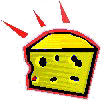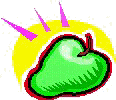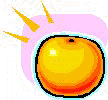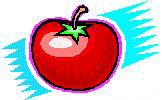







GOALS OF DIET
1. To eliminate from the diet all foods which are extremely high in purines and to limit the use of those foods which are high in purines.
2. To meet the Recommended Daily Dietary Allowances (RDAs) from foods which are low in purines.
3. To moderately restrict the fat content of the diet.
4. To control calories in order to reach and/or maintain ideal weight.
LOW PURINE DIET
FOODS |
FOODS ALLOWED |
FOODS TO AVOID |
Beverages |
Coffee, tea, carbonated beverages, cereal beverages such as Postum, decaffeinated coffee, fruit drinks, and vegetable juices. |
Alcoholic beverages. |
Milk (Two or more cups) |
Skim milk, buttermilk made from skim milk, low-fat yogurt; limit yogurt to 1 cup per day. |
Any milk or milk beverage containing fat, such as low-fat milk, imitation milk and whole milk, whole milk yogurt. |
Meat groups (meat, fish, fowl) Limit to one 3oz. serving per day - cooked weight, not including bone or fat. 1/4 cup salmon or tune is equivalent to 1 ounce meat. |
Lean meat, fish, fowl (except that listed in the "avoid" column), without visible fat or skin. |
Brains, heart, kidney, liver, sweetbreads. Anchovies, sardines. Duck & goose. Cold cuts, frankfurters, luncheon meats. Heavily marbled and fatty meats, spare ribs, mutton, sausage, salt pork or fatback. Soy protein foods. |
Meat Alternates (eggs, cheese, nut butters) 3 to 5 meat alternatives per day; one of the following is one alternate: 1 egg, 1/4 cup cottage cheese, 1 ounce cheese, 2 Tbsp. nut butter. |
Eggs. Cheese: Especially low-fat cheese, such as cottage cheese. Peanut butter (limit to 2 Tbsp. per day) |
Cream cheese. |
Vegetables 2 or 3 servings (1/2 cup) or more. |
All vegetables except those listed in the "to avoid" column. One serving should be a source of vitamin A - dark green leafy or deep yellow vegetable. |
Asparagus, cauliflower, mushrooms, spinach; vegetables prepared with large amounts of cream or other fat-containing foods. |
Fruits 2 or more servings, 1/2 cup each. |
All fruits and fruit juices. One serving should be a source of vitamin C - citrus fruits, strawberries, cantaloupe, or guava. |
None. |
Breads and Other Starches 5 or more servings. All breads, cereals, crackers, and pasta should be enriched or restored. |
Breads made with a minimum of fat and without bran, oatmeal, or wheat germ: White enriched (including raisin), English muffins, French bread, Italian bread, tortillas, water bagels. Quick breads, in moderation. Cereals: All hot and cold varieties, except those listed in the "avoid" column. Crackers, Graham crackers, matzoh, melba toast, pretzels, rusk and saltines. Other starches: Macaroni, noodles, spaghetti, rice, corn, and potatoes. |
All breads containing bran, oatmeal, or wheat germ. Donuts, sweet rolls, coffee cakes, and other breads containing large amounts of fat. Bran, oatmeal, wheat germ, and whole wheat cereals. Other crackers. Dried beans, dried peas and lentils. |
Fats and Oils Limit to 3 teaspoons per day. |
Any kind except those listed in the "avoid" column. Any one of the following nuts in teh amount listed is equal to 1 tsp. fat: 6 whole almonds; 8 whole peanuts; 5 walnut halves. |
Meat drippings; olives. |
Soups |
Soups made with allowed vegetables and/or skim milk. |
Meat soups, broth, bouillon, or consomme; soups containing large amounts of fat. |
Seasonings and Miscellaneous |
Salt (iodized), all spices and herbs; catsup, mustard, and other condiments; dry cocoa powder; sauces made from "allowed" ingredients. Sweets: jelly, jam, marmalade, honey, sugar, plain sugar candies, molasses, syrup. |
Gravies and sauces made with whole milk or large amounts of fat. Meat extracts; yeast - baker's (except in bread) or brewer's. Any containing large amounts of butter, chocolate, coconut, cream, margarine, whole milk or other fat-containing foods. |
Desserts |
Fruit whip, gelatin, homemade skim milk, sherbet, water ice; angelfood cake; meringues; popsicles; puddings made from skim milk. |
Ice cream, ice milk, cake (except angelfood), cookies, pies, and other desserts containing large amounts of fat. Desserts containing mincemeat or oatmeal. |
SAMPLE MENU PATTERN
BREAKFAST
Food Group |
Sample Pattern |
Fruit |
Orange juice |
Meat |
Poached egg |
Bread |
White toast |
Fat |
1 tsp. margarine |
Milk |
Skim milk |
Misc. |
Sugar |
Beverage |
Coffee |
LUNCH
Food Group |
Sample Pattern |
Meat Alternates |
Cold Plate 3/4 cup cottage cheese |
Vegetables |
Sliced tomatoes Dill pickle spears Lettuce liner |
Bread |
Saltines |
Fat |
1 tsp. margarine |
Fruit |
Fresh apple |
Milk |
Buttermilk |
Miscellaneous |
Sugar |
Beverage |
Coffee |
DINNER
Food Group |
Sample Pattern |
Meat |
3 oz. lean, broiled chop |
Starch |
Baked potato |
Vegetable |
Green beans |
Salad |
Canned peach with prune plum |
Bread |
French roll |
Fat |
1 tsp. margarine |
Dessert |
Angelfood cake |
Miscellaneous |
Sugar |
Beverage |
Coffee |
GUIDELINES FOR PATIENT
In order to reduce the amount of purines in your diet, the foods which contain unusually large amounts are omitted and foods which are moderately high are controlled. When you eat purines they are converted to uric acid by the body; this increases your chcances of having an attack of gout.
The following foods are eliminated because of their excessively high content of purines:
Sweetbreads
Anchovies
Kidney
Liver
Meat Extracts
Sardines
Gravies
Meat, fish and fowl are limited to one 3-ounce serving per day. Dried beans, dried peas, lentils, asparagus, cauliflower, mushrooms, spinach, bran, oatmeal, and wheat germ have been placed on the "avoid" list of your diet; however, a 1/2 cup serving of one of these could be used once per day if you use a meat alternative in place of your 3 oz. meat allowance.
Fats and alcohols are controlled in the diet because they are believed to prevent excretion of uric acid from the kidneys.
Fasting can frequently cause as many problems as a diet high in purines, since the protein in one's body is broken down when inadequate food and calories are available and large amounts of purines can be produced.
It is important that your diet contain all the nutrients known to be required for good health. The starred foods for the foundation of an adequate diet and provide approximately 1300 to 1500 calories per day when eaten in the amounts listed. Additional servings of these foods (except meat and fat) and foods from the unstarred groups may be used to provide addtional calories as needed.
It is advisable to drink at least 8 to 10 cups of water each day - this helps to increase uric acid excretion by the kidneys.
Joint Disease Info | Sponsor | About Us | FAQ | Contact Info
Media Page | E-mail Us | Dr. Barbosa Talks To You About..
Art & Arthritis | Patient Forms & Info | Mark's Memos | Guestbook
![]() 2020
JointCare.Org
2020
JointCare.Org